We've lived through a long history of Pakistanis behaving badly with women: sometimes we want to beat them lightly, other times we want to prevent them from working, and in extreme cases we kill them.
So we were prepared for a backlash against the women's marches that took place across Pakistan on International Women's Day. We accepted that most Pakistanis would react badly to the spectre of women taking to the streets en masse to call for equal rights.
What we WEREN'T prepared for is how one little poster about food — one poster among the hundreds of posters carried at these aurat marches -- would transform a vast number of Pakistani men into emotional wrecks.
This is the poster we're talking about:

As soon as pictures of this poster made their way online, the backlash was immense. Popular Facebook pages took offense to the post and crafted memes mocking desi feminism and women in general. Men took to Twitter to express their indignation too.
All of this had us scratching our heads. WHY was this poster so offensive to men? Did they not understand that the poster was a simple call to end gender stereotyping? That men and women should both be encouraged to do housework, and that splitting household chores is an essential step towards equality? Apparently not.
Thankfully some women and men on social media clapped back using logic.
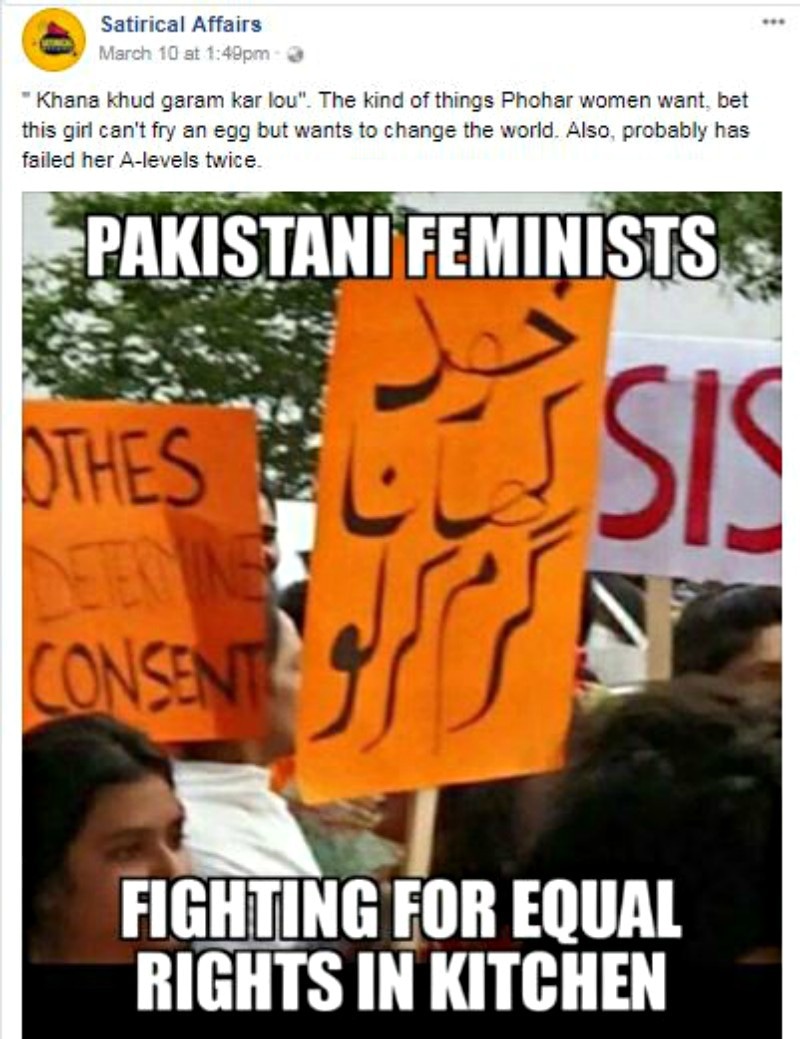

Yeah. Seriously, did you just take us back to A'Levels? Maybe if you want to be taken seriously by women you should present a better argument.

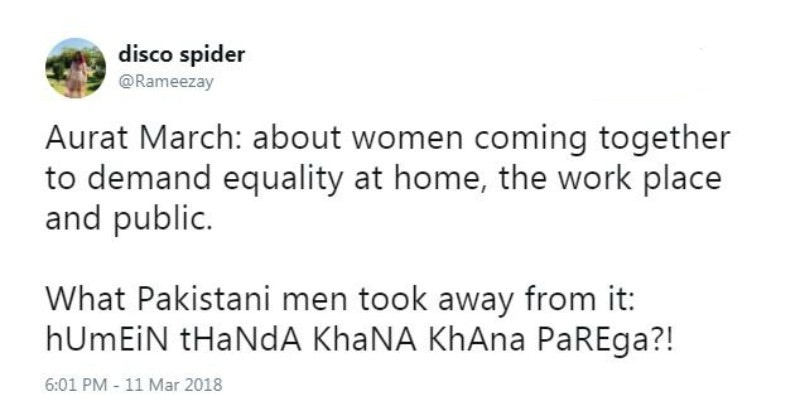
Yep. Did anyone even read the manifesto for Karachi's Aurat March, which called for economic justice, reproductive justice and environmental justice? The aurat marches happening around the country featured hundreds of posters that talked about rights for transgender persons, physical insecurity, rape and more.
And yet we can only focus on a poster about food? Hmm.


And if that isn't enough, here's some proof that the Aurat March was concerned about issues OTHER than dinner.

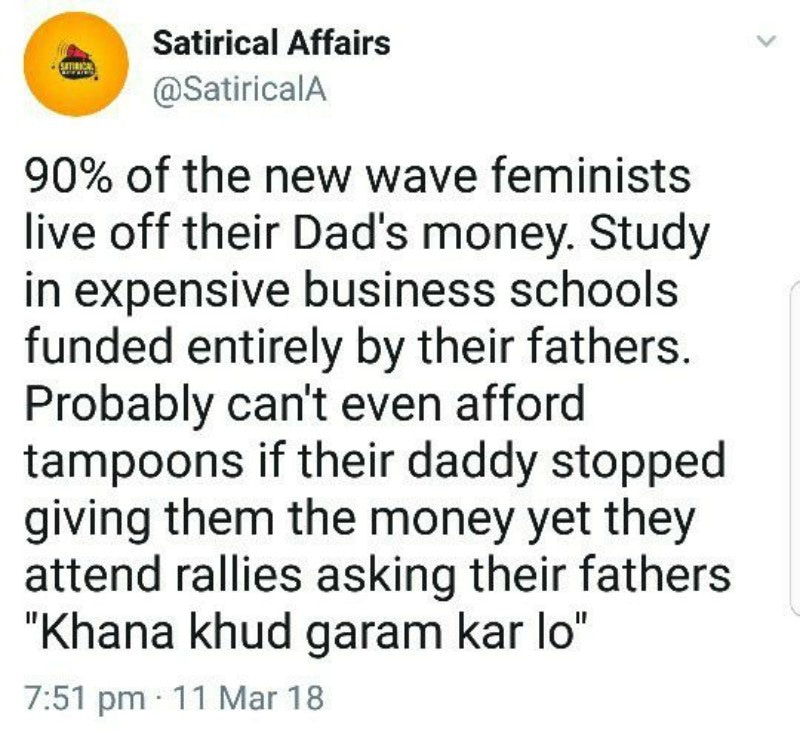

Not only does this person make a completely random assumption about the women referred to as "new wave desi feminists", he/she forgets that it's common for both young women and men to have their parents pay for their college degree. The poster calls for equal distribution of housework and if you expect women to pay back their parents' financial support with house chores, then the same should be expected of their brothers. That's all the poster is trying to convey.
Also... what's a tampoon?

Here's a reality check:

Also, there have been numerous reported incidents of domestic violence occurring after women didn't meet men's expectations in the kitchen. So, do you really think it's women who need to "mature"?
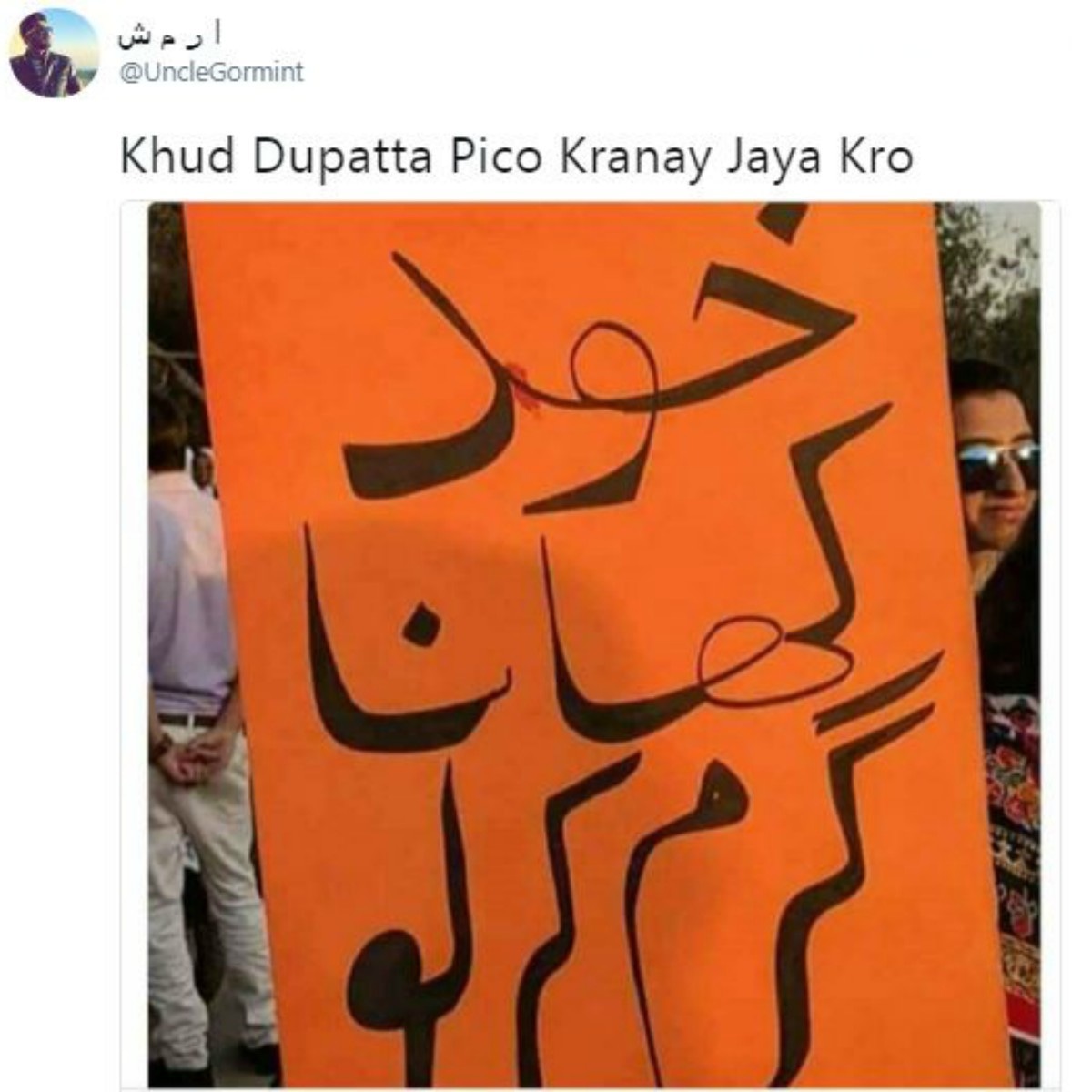

While it'd be great for all women to do their own shopping, change their own tyre, etc, it's important to recognise that women aren't socialised to perform these activities, so they don't necessarily have the confidence and skills to do them. So again, the poster is a call for an end to gender roles and the hope is that it galvanises both women and men to brush up on some basic life skills.


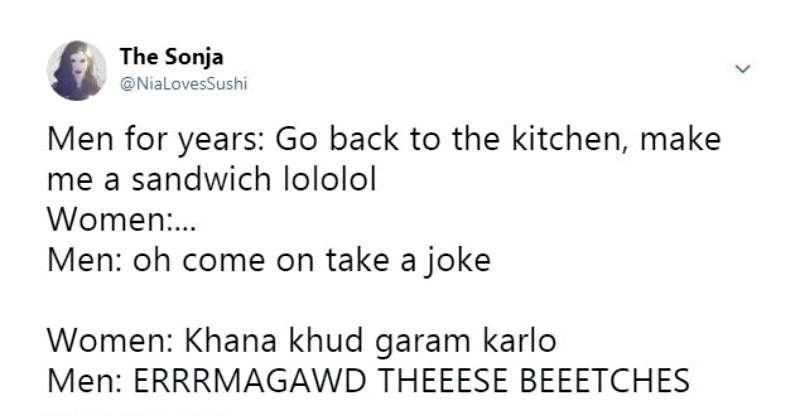



Comments